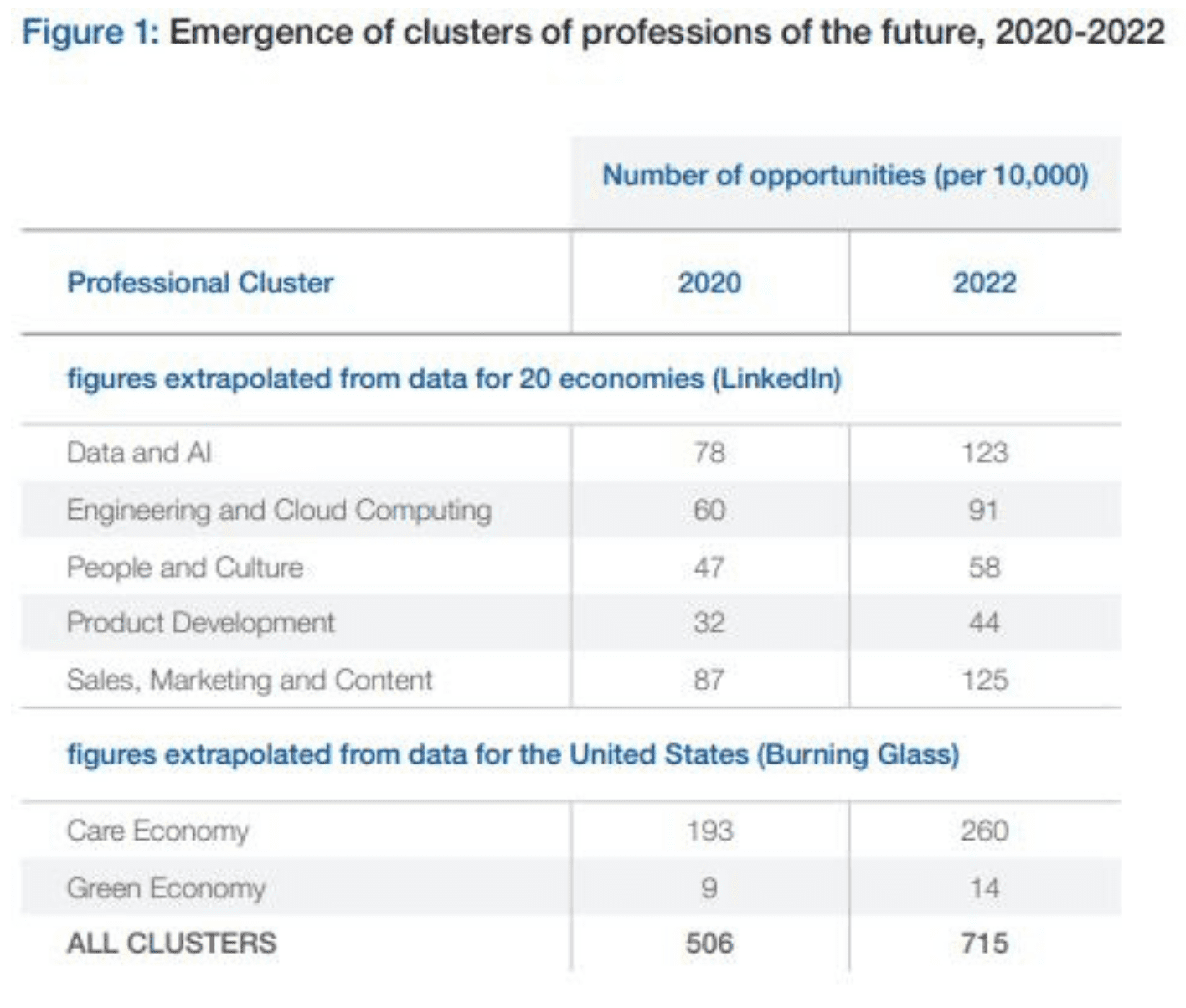The World Economic Forum has zeroed-in on skills and training as it seeks to put the world right in Davos this week. It has launched a programmer, Reskilling Revolution, to provide one billion people with better education, skills and jobs in the face of technological change by 2030.
A major part of the narrative and sub-narrative at its 2020 annual meeting in Davos-Klosters, in Switzerland, where politicians and executives rub shoulders to redefine how globalised capitalism can work as a fairer and greener system, is around the role of technology.
The Organisation for Economic Co-operation and Development (OECD) estimates 1.1 billion jobs are liable to be “radically transformed” by technology in the next decade, said the World Economic Forum. Skills instability with all jobs will mean nearly half of core skills are set to change by 2022 alone, it said. At the same time, it predicts an “overall net positive” between job growth and decline.
In the US manufacturing sector, new research says the rise of technology, and the need for manufacturers to keep pace, means more than three quarters of companies have open positions they cannot fill, and that as many as 2.4 million manufacturing jobs could go unfilled by 2028 (see below).
A report from the World Economic Forum maps seven emerging professional jobs clusters and the 96 fastest growing jobs within them. “The adoption of new technologies is giving rise to greater demand for green economy jobs, roles at the forefront of the data and AI economy and new roles in engineering, cloud computing and product development,” said the World Economic Forum.

Saadia Zahidi, managing director for new economy and society at the World Economic Forum, said: “Technological change, patterns of globalization and the green transition pose great risks to people’s livelihoods. An urgent investment in human capital is needed to revive pathways to social mobility and create a fairer world.”
Klaus Schwab, founder and executive chairman at the World Economic Forum, added: “The best way to foster a more cohesive and inclusive society is to provide everybody with a decent job and income. We are creating a public-private platform to give one billion people the skills they need in the age of the Fourth Industrial Revolution. The scale and urgency of this transformation calls for nothing short of a reskilling revolution.”
The new scheme will seek to connect and coordinate individual initiatives within specific countries, industries, organizations and schools. It has been established with governments from Bahrain, Brazil, Denmark, France, India, Oman, Pakistan, the Russian Federation, Singapore, the UAE and the US. Business partners include PwC, Salesforce, ManpowerGroup, Infosys, LinkedIn, Coursera, and Adecco Group.
Most of these governments will run national accelerators to hot-house talent. Denmark and Singapore are acting as “learning network champions”. France and the US will integrate their own public-private training initiatives with the new platform, and also offer guidance to nations seeking to develop their own.
The US government has called on companies to commit to upskilling of workers through the Pledge to America’s Workers scheme. The White House claims it has so far seen 415 companies offer 14.5 million training opportunities during the next five years.
A new survey by The Manufacturing Institute, in the US, says estimates manufacturers spent at least $26.2 billion in 2019 on internal and external training programmes. The survey found 79.4 per cent of manufacurers are increasing their workforce training efforts in an effort to combat the industry’s significant skills gap.
A survey by the National Association of Manufacturers (NAM), also involved in the research for The Manufacturing Institute, has cited skilled labour as the primary business challenge facing manufacturers for nine quarters running. In the latest survey, 78.7 per cent said that they have open positions that they are struggling to fill
Another report by Deloitte and The Manufacturing Institute found 2.4 million manufacturing jobs in the US could go unfilled by 2028.
NAM signed the Pledge to America’s Workers in July 2019. Manufacturers have committed to provide training opportunities to 1.186 million manufacturers over the next five years to address the skills gap.
France has a public-private effort of its own, called Mon Compte Formation, described as an “individual skills account with an integrated mobile application dedicated to vocational training and lifelong learning”. These public-private models will inform new policy instruments, financing and rapid delivery partnerships, said the World Economic Forum.
The Republic of Ireland last month unveiled a five-year Industry 4.0 strategy to help manufacturing firms to respond to technological change. The plan includes €23.5 million of funding for the Irish Manufacturing Research (IMR) Centre.
The Irish government said its strategy is geared towards the development of new digital skills and technologies in the country’s manufacturing sector, and to drive collaboration between small, medium and large sized enterprises.

